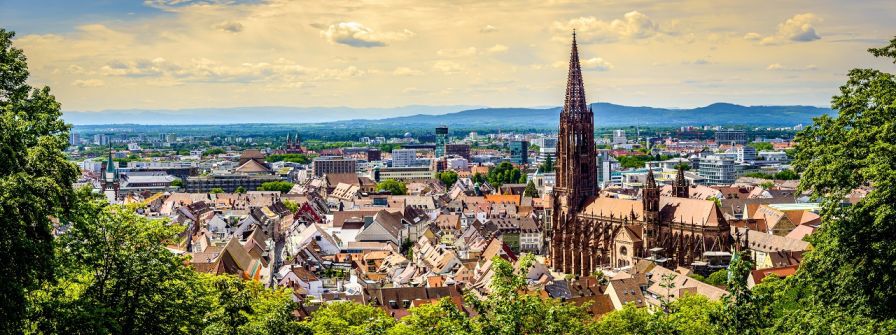Open Positions
Postdoc & PhD PositionsWe currently have open Postdoc and PhD positions for researchers to work on the intersection of robotics, machine learning, and computer vision. The salary scale for full-time positions is TV-L E13 to TV-L E14, 100% and additional benefits. The Robot Learning Lab is part of the ELLIS unit Freiburg, the Department of Computer Science, and the BrainLinks-BrainTools Center. The position offers a novel perspective to relevant problems in robot perception, state estimation, navigation, and mobile manipulation, in order to enable robots to reliably operate in more complex domains and real-world environments. The candidates are expected to conduct independent research and at the same time contribute to the ongoing projects, and guide master and bachelor students. The candidate should hold a master's degree (or PhD degree for PostDoc applicants) in robotics, artificial intelligence, computer science, or a related discipline. The candidate should have a strong mathematical background and programming skills including deep learning frameworks such as PyTorch or TensorFlow. Prior research experience in one or more of the following areas: deep learning methods for robot vision, navigation, SLAM, mobile manipulation, multimodal learning, self-supervised learning, unsupervised learning, imitation learning, and reinforcement learning. We furthermore expect outstanding qualifications, the motivation to obtain a doctoral degree, and the interest to work in an interdisciplinary environment. Finally, we require applicants to have excellent communication skills in English. International candidates are encouraged to apply, knowledge of the German language is not required. Women and people of underrepresented minority groups are strongly encouraged to apply. The application documents should consist of a single PDF file and include:
Applications should be sent via email to rl-apply@cs.uni-freiburg.de with the tag [Postdoc] or [PhD] in the subject line. Applications will be considered until the positions have been filled. |
MSc Projects and ThesesOur group is only able to offer projects/theses to exceptional candidates who match the criteria that we are looking for. We expect the student to have taken one or more courses related to deep learning, robotics, computer vision, and reinforcement learning. We strongly recommend doing an MSc project with us before inquiring about an MSc thesis. Master students enrolled at the University of Freiburg can request to do a project or thesis on the following topics:
Please email rl-inquiry@cs.uni-freiburg.de with the tag [MSc-project] or [MSc-thesis] in the subject line and include the following information:
|
MSc in FreiburgYou can apply to the central MSc program if you wish to study for your master's at the University of Freiburg. We offer an AI master's program that enables you to specialize in areas such as robotics, artificial intelligence, machine learning, image processing, and computer graphics. You can find more information on applying at https://www.tf.uni-freiburg.de/en/study-programs/computer-science/m-sc-computer-science. |
Internships and Research VisitsIf you are currently doing a postdoc, PhD, or master's in a field very closely related to our group's research and would like to visit our group, please email rl-apply@cs.uni-freiburg.de with the tag [Intern] in the subject line. If you are applying for the DAAD-WISE scholarship, please send your full application details via email to rl-apply@cs.uni-freiburg.de with the tag [DAAD-Wise] in the subject line. We have a strict selection criterion and we only accept outstanding candidates. |
About Freiburg They say there are two kinds of people in Germany - those who live in Freiburg, and those who would like to. This most liveable city in southwestern Germany has 230,000 inhabitants. We have excellent conditions for studies and research, along with a high quality of life. Freiburg is the sunniest metropolis in Germany and is known for the Black Forest mountains, vineyards, the medieval minster, the market square, the mini-canals that run along its streets, and the cafés in the Old Town. At the same time, it is a green city, a symbol of sustainable lifestyles and high environmental standards. Here, students and professors alike ride their bikes to Uni, and the sports club operates a climate-neutral stadium. Freiburg is internationalFreiburg has the highest concentration of researchers anywhere in Germany. The University of Freiburg, the two Max Planck, and five Fraunhofer Institutes attract researchers and students from around the world. They give the city an international flair in lecture theaters, laboratories, and cafeterias - and of course in the lively nightlife and culture scenes. Freiburg’s location close to the borders of Germany, France, and Switzerland enables cross-border exchange. The Universities of Freiburg, Basel, Karlsruhe, Mulhouse, and Strasbourg work together in the Upper Rhine region’s European Campus. |

